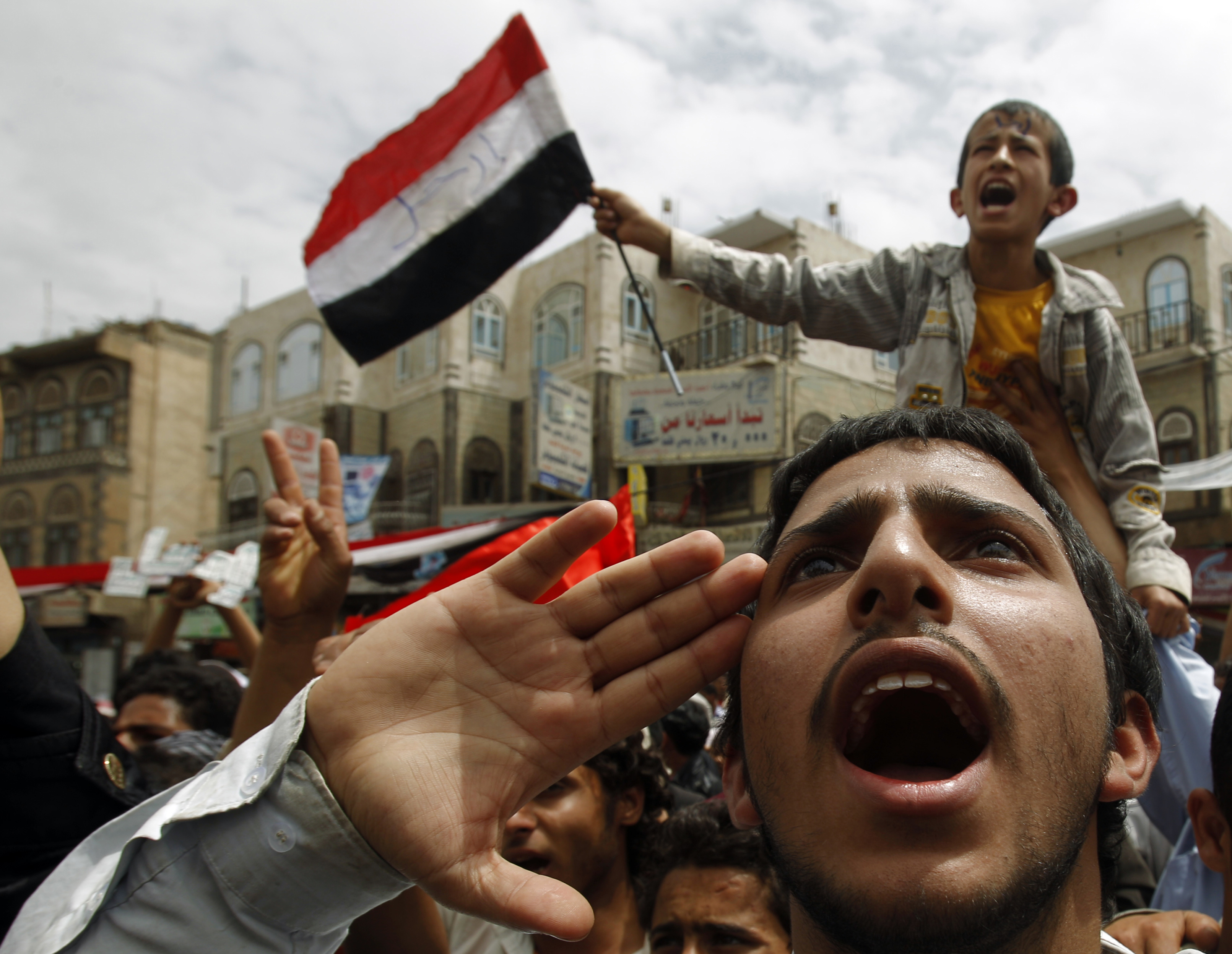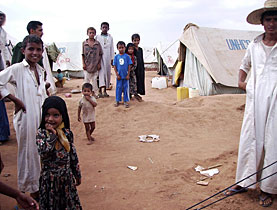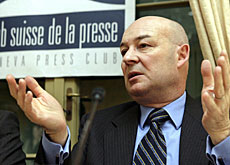“Yemen lacks road map for change”

In Yemen, protests against the rule of President Ali Abdullah Saleh have been continuing for weeks, but are becoming increasingly violent.
With civil war looming, Yemeni-Swiss political scientist Elham Manea tells swissinfo.ch she has not given up hope for her country.
Pro-democracy protests in Yemen have left more than 60 people dead. Around 40 anti-government protesters were shot dead by government forces in Sanaa on Friday, doctors said.
Saleh has offered to form a national unity government but the protesters have rejected the offer, demanding that he step down.
Manea, who teaches at Zurich University and specialises in the politics of the Arabian peninsula, recently returned from Sanaa where she took part in a demonstration and sensed “hope and awakening” among the young people.
swissinfo.ch: Who are the people who are taking to the streets?
Elham Manea: It started in northern Yemen with students of Sanaa University. Later they were joined by students from other cities. At the demonstration I took part in on February 28 on Tahrir Square, there were students, housewives, Islamists, journalists, members of non-governmental organisations, members of different clans – a cross section of the population that has had enough of this type of government and wants change.
swissinfo.ch: Is there a consensus within the opposition movement over a political programme for the country?
E.M.: That’s the problem. You can read on the facebook pages of the youth movement that they want a secular state, a democratic state with separation of powers and justice.
But at the same time, you notice that they are speaking about change without knowing how that should proceed. There’s no “road map”. And who will replace Saleh? That is the question. The young people in particular want to set up a new system of government. But their movement has no leadership.
In the context of Yemen, it’s virtually impossible to have change without force. That is because the clan of President Saleh controls everything: security, the army, the secret service.
The demonstrators are demanding that Saleh and his clan step down. That is hard to achieve. They won’t simply pack their bags and be off. The clan will not give up power. When I was there, I noticed that a part of his clan had begun to distance itself from Saleh. It’s possible that they will ditch him.
swissinfo.ch: President Saleh last week promised comprehensive constitutional reform, with genuine separation of powers. He also offered to form a new government. The opposition has rejected these offers. Why?
E.M.: The young generation doesn’t have any confidence in these proposals. The older members of the opposition, who in the past always worked with the government, are also saying no because they have no choice. They see that the people on the streets don’t want this government any more.
Saleh is trying to find a way of staying in power. But whatever he proposes will be rejected by the opposition. And that is part of the problem, because it means deadlock, and that can lead to an escalation of the situation.
swissinfo.ch: Religious scholars are warning of a civil war, while observers say the country could fall apart, as happened in Somalia. Are these fears justified?
E.M.: A civil war is possible, when you consider how tough and brutal the authorities have been in dealing with the demonstrators in southern Yemen, under the pretext that these are secessionists who want to break away.
But civil war isn’t just possible between the north and the south. Recently there has been a polarisation between the clan of Saleh and the Hashid confederation of Sheikh Hamid and Sadiq al-Ahmar. Everyone knows that one false move can lead to an outbreak of violence.
In Somalia, there was a similar development before the country broke apart, namely a fragmentation into clan structures that led to stalemate.
swissinfo.ch: Do you see parallels between the protest movement in Yemen and those in Egypt and Tunisia?
E.M.: There are parallels: high unemployment, corruption, a stagnating political system, lack of freedom, poverty, unfair distribution of resources. These problems are present in all three countries.
But there are also important differences. Tunisia and Egypt are old states with a solid national identity. The fragmentation there is not along the lines of tribes and clans.
In Egypt there are religious groupings such as Muslims and Copts but none of them would ever question the fact that they are both Egyptian. If someone in Yemen says, I am a Yemeni, the question always follows: northern or southern Yemeni?
What is interesting now though is that the young demonstrators no longer believe in ethnic or religious fragmentation. They say, we are Yemeni. And they believe that. There is perhaps a hope that something will change, thanks to this young generation.
Born 1966 in Egypt, the child of an Egyptian mother and a North Yemeni father.
Grew up partly in Yemen, and is a regular visitor to the country.
Has lived in Switzerland since 1995 and has Swiss and Yemeni citizenship.
Studied political science at Kuwait University and the American University in Washington.
Completed a doctorate at Zurich University, where she now teaches.
The modern Republic of Yemen was formed in 1990 when North Yemen and Marxist South Yemen merged after years of border wars and skirmishes.
The peace held until 1994 when a short civil war ended in defeat for separatist southerners and the survival of the unified Yemen.
President Ali Abdullah Saleh has been in power for 32 years.
Yemen has 22 million inhabitants, 42% of whom live below the poverty line. One third don’t have enough to eat.
Most Yemenis are Muslim: Sunni, Shi’ite or Zaidi. There are around 400 Jews.
(Adapted from German by Morven McLean)

In compliance with the JTI standards
More: SWI swissinfo.ch certified by the Journalism Trust Initiative















You can find an overview of ongoing debates with our journalists here . Please join us!
If you want to start a conversation about a topic raised in this article or want to report factual errors, email us at english@swissinfo.ch.